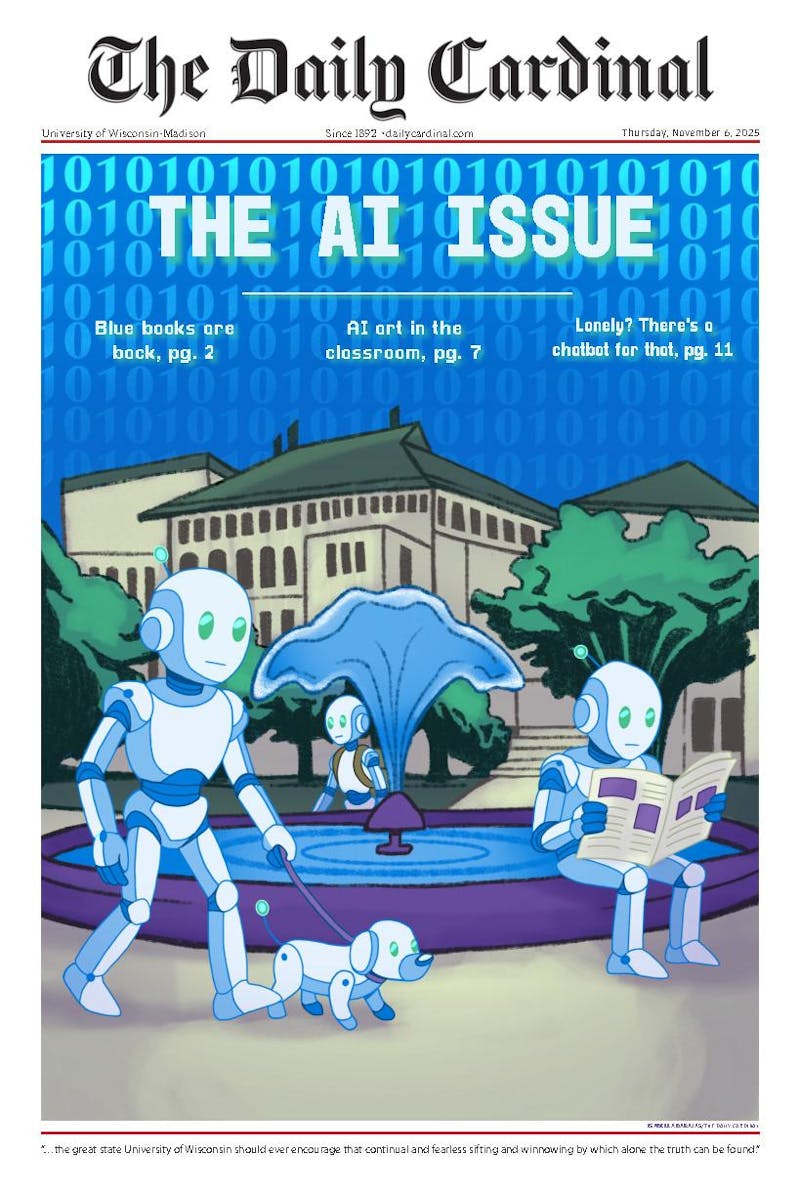The University of Wisconsin-Madison is testing out a new artificial intelligence chatbot that helps students practice civil discourse through simulated conversations and real-time feedback.
The pilot program, part of the university’s new Wisconsin Exchange: Pluralism in Practice initiative, launches this month in collaboration with the Institute for Citizens & Scholars. The AI-powered, voice-based tool allows students to choose topics they care about and engage in short conversations with AI partners that take opposing viewpoints.
“Students identify a few issues that matter most to them,” UW-Madison spokesperson Victoria Comella said in an email to The Daily Cardinal. “Bite-sized explainers show them how and why civil discourse skills work. Students practice each skill out loud with an AI partner through short voice conversations on a topic they chose, and they get real-time coaching and instant feedback from a second AI mentor.”
The pilot will run through the end of the calendar year.
The Wisconsin Exchange aims to build a “culture of dialogue across difference” on campus by teaching students to listen, ask questions and engage respectfully on divisive issues. Chancellor Jennifer Mnookin said the initiative encourages “meaningful dialogue across their differences” as part of the university’s broader effort to strengthen civic learning and discourse.
UW has come under fire for years from conservative politicians and campus figures for failing to uphold open dialogue and promote ideological diversity.
Programs under the Wisconsin Exchange, such as the Deliberation Dinners and The Discussion Project, already give students opportunities to share perspectives on controversial topics. The university said the AI chatbot could add a new dimension by allowing private, low-stakes practice before entering real discussions.
The AI platform breaks civil discourse training into steps. Students start by selecting a topic, then receive short explainers about communication strategies like empathy and active listening. They practice those skills aloud with the AI partner, which challenges their viewpoint, while a second AI provides instant feedback on tone, phrasing and listening cues.
The goal, Comella said, is to help students feel “more confident and prepared for the real world.”
The pilot’s findings will not only inform UW-Madison’s future programming, but also contribute to research from other universities involved in the collaboration. Comella said all data collected will be anonymous and focus on students’ experience using the tool rather than individual performance.
“The aim is that the aggregated data from the pilot — not just from UW-Madison but from all participating universities — will be informative for future programming,” Comella said.
Alaina Walsh is the associate news editor for The Daily Cardinal. She has covered breaking news on city crimes and a variety of state and campus stories, including the 2024 presidential election and the UW-Madison budget.






